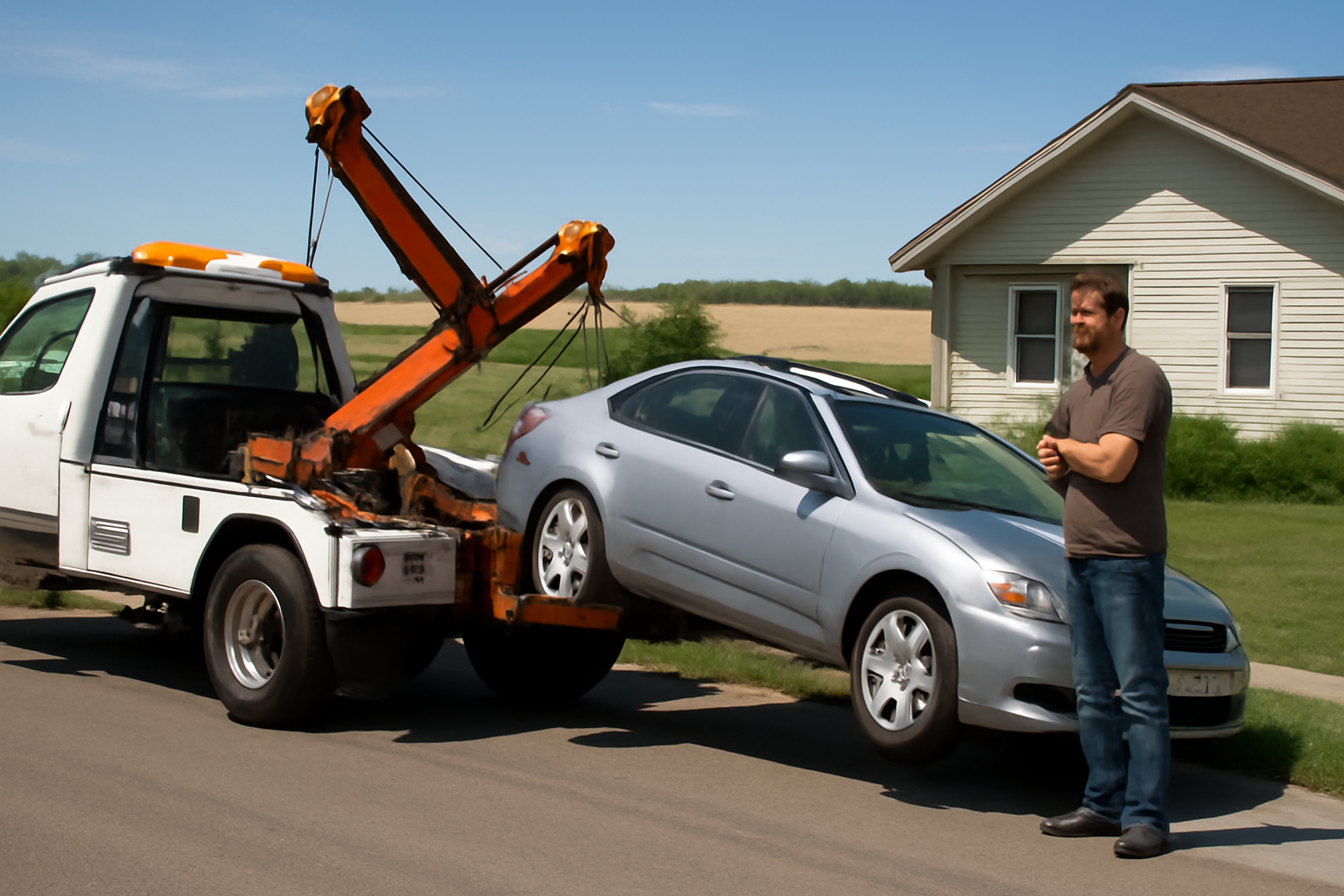Tow Woes in Iowa: How You Could Lose Your Biggest Asset
Imagine parking your car, going about your day, and returning to find it vanished—towed away due to circumstances you didn’t even know about. For many Iowans, this is more than an inconvenience: it can be the start of an expensive ordeal that could cost them their car for good. Let’s take a deep dive into how Iowa’s vehicle towing laws can turn your transportation into a financial disaster, and what you need to know to protect yourself.
Why Towing Is Such a Big Deal in Iowa
For most people, their car is the biggest asset they own aside from their house. It isn’t just a way to get from point A to point B—it’s essential for work, groceries, doctor’s appointments, and taking care of family. Losing your car can mean lost wages, missed opportunities, and spiraling financial troubles.
Recently, Iowa residents have faced mounting complaints about how cars are towed from parking lots and streets, sometimes with little warning or confusing rules. A Des Moines Register article highlights just how devastating a tow can be, underscoring the urgent need for Iowans to understand the local laws—and loopholes—that govern towing.
How Iowa Law Allows Cars to Be Towed
Iowa’s towing regulations give private property owners, landlords, apartment complexes, and city authorities broad rights to remove vehicles they consider “illegally parked.” According to Iowa Code Chapter 321, these entities may call a towing company if they believe your car is violating their parking policies—even if you’re only there for a short period, or you didn’t see the towing sign.
Here’s what typically happens:
- Your vehicle is towed (often at your expense) to a private impound lot.
- Fees add up fast: Initial tow, storage, administrative, and release fees can quickly reach hundreds of dollars. Each additional day it stays in the lot adds more to your bill.
- If you can’t pay promptly, the tow company may gain the legal right to sell your vehicle at auction—leaving you without a car and often with little recourse or financial benefit.
This can happen shockingly fast. Iowa law allows for a vehicle to be considered “abandoned” after just ten days in the impound lot, at which point the owner risks losing their car altogether.
The Real Stories: Trapped by Towing Fees
Many people assume this won’t happen to them—until it does. Imagine a scenario common in Des Moines: You park in a lot, run inside for a quick errand, and come out to an empty space and no idea where your car went. By the time you figure out who has your car, you’re already facing steep towing and storage charges. If you don’t have the money readily available, your vehicle could be auctioned off, sometimes for less than what you owe in fees.
In real-life cases reported by the community and local media, even people who try to retrieve their cars quickly find themselves caught in a costly web of fees, paperwork, and confusing rules. Some drivers report feeling targeted, especially in apartment complexes or shopping center lots.
Your Rights After a Tow
While Iowa law does outline your rights when your car is towed, the reality is many drivers find the process complicated and intimidating. Here’s what you should know:
- You have the right to know who towed your vehicle and where it is. This information should be clearly posted at the lot or available through city authorities.
- You’re entitled to an itemized bill breaking down charges. Don’t be afraid to ask for clarification or question excessive fees.
- You may challenge a tow if you believe it was unlawful. However, navigating this process may require legal assistance and can take time.
- If your car is sold, you have a right to any surplus funds after covering the tow costs, but most people never see this benefit due to high fees.
How to Protect Yourself from Unwanted Tows
Nobody wants to lose their car to a technicality or predatory towing practices. Here are some practical tips to reduce your risk:
- Always read parking signs carefully – some regulations can be easy to miss or confusingly worded.
- Don’t leave your car overnight in private lots unless you’re certain it’s allowed.
- Keep your driver’s license, registration, and insurance updated – problems with paperwork can make retrieval even harder.
- If your car disappears, call local law enforcement first to check if it was towed (and not stolen!) before calling area tow companies.
- Collect proof – photos and receipts can help if you need to dispute a tow or negotiate fees.
What Should Change? Advocacy for Fairer Laws
Civic groups and concerned residents believe Iowa’s current tow laws are stacked against everyday people and make it too easy for towing companies to profit from drivers’ mistakes. Advocates push for stronger state legislation that would:
- Require clearer signage at all tow-away zones
- Set maximum fees for towing and storage
- Extend the grace period before a vehicle is deemed abandoned
- Give car owners more leverage in disputing a tow
If you believe you’ve been a victim of unfair towing, organizations such as the Iowa Attorney General’s Office can provide guidance on how to file a complaint or seek help.
The Bottom Line: Stay Aware, Stay Protected
Nobody expects to lose their car to a tow, but knowledge is key in the ever-changing landscape of Iowa’s towing laws. Reading the fine print, staying up to date on local ordinances, and knowing where to turn for help can make all the difference in keeping your biggest asset safe.
For even more resources and up-to-date information, explore the civil rights and consumer protection links provided throughout this post, and keep a close eye on any changes to Iowa’s statutory codes regarding vehicle tows and repossessions.
If you want to read more about this issue, including real-life stories and legal updates, check out the full story from the Des Moines Register.




